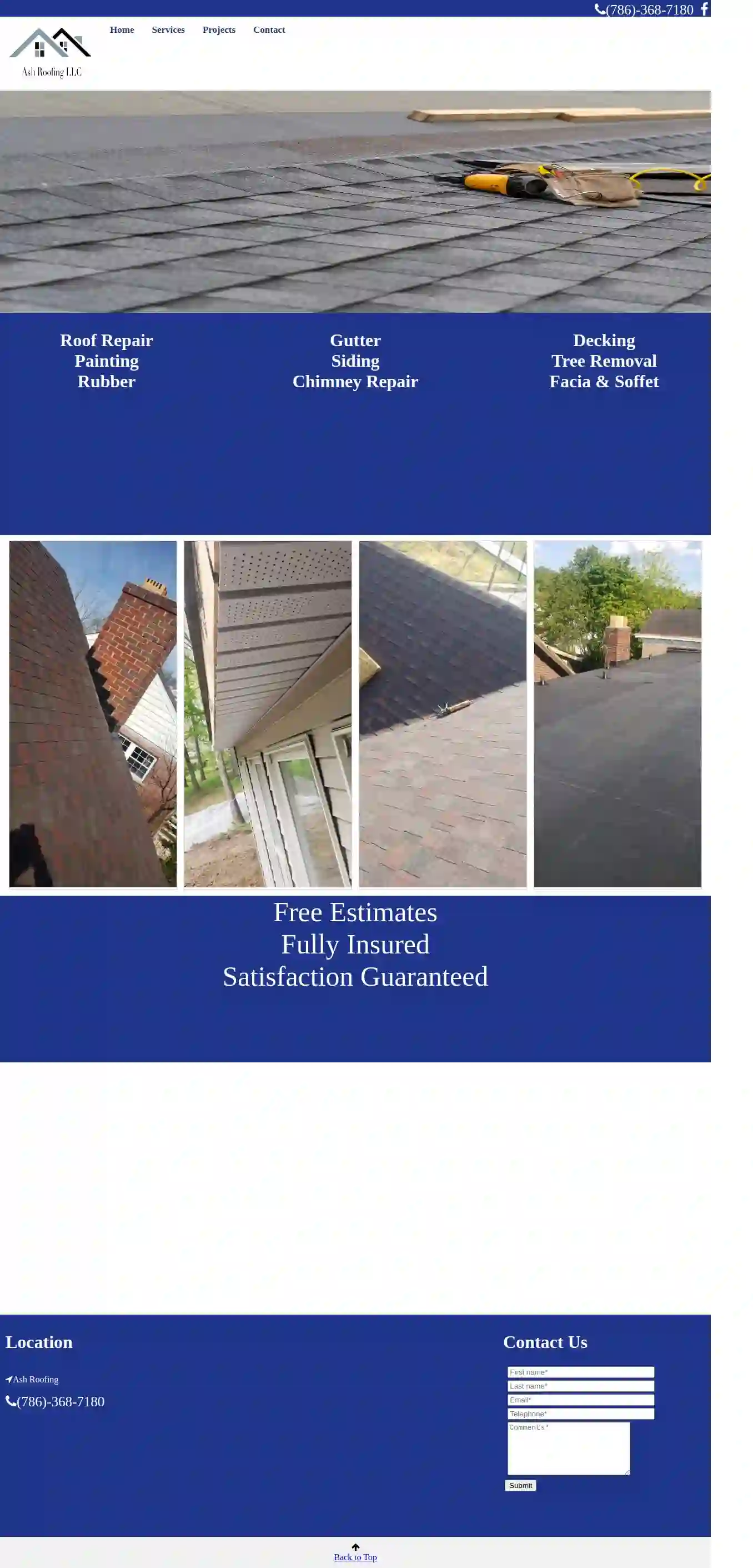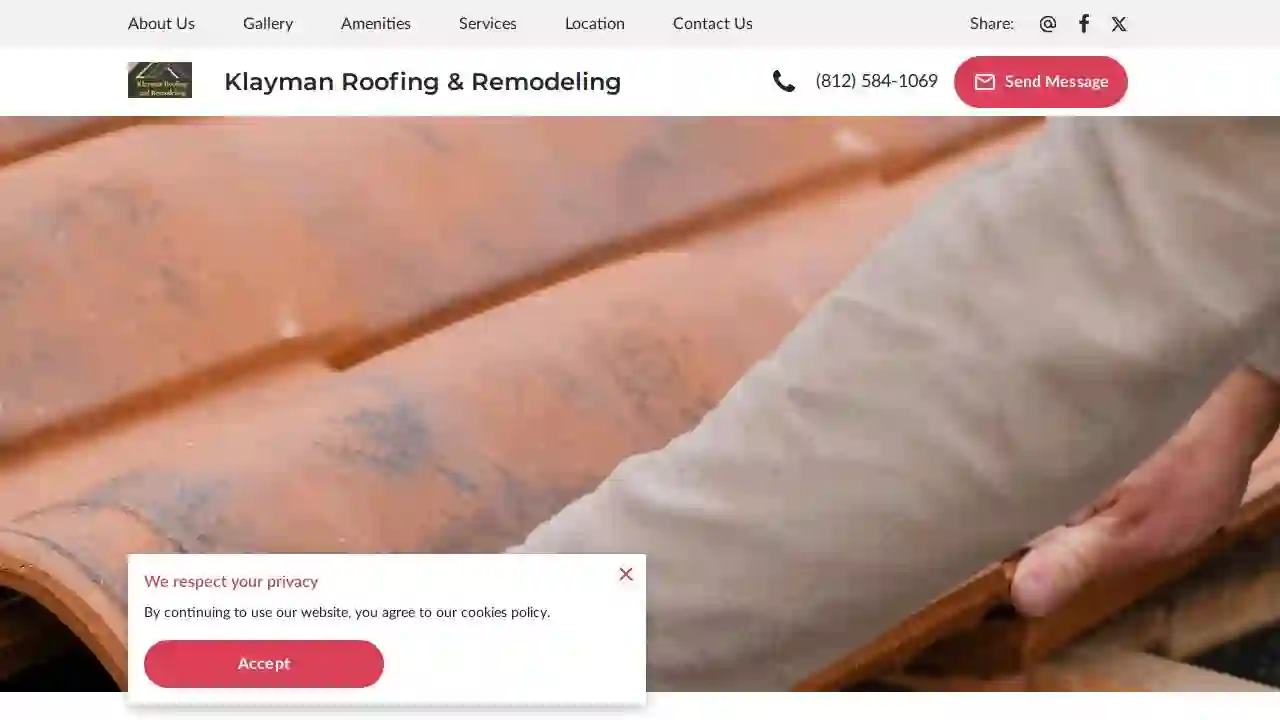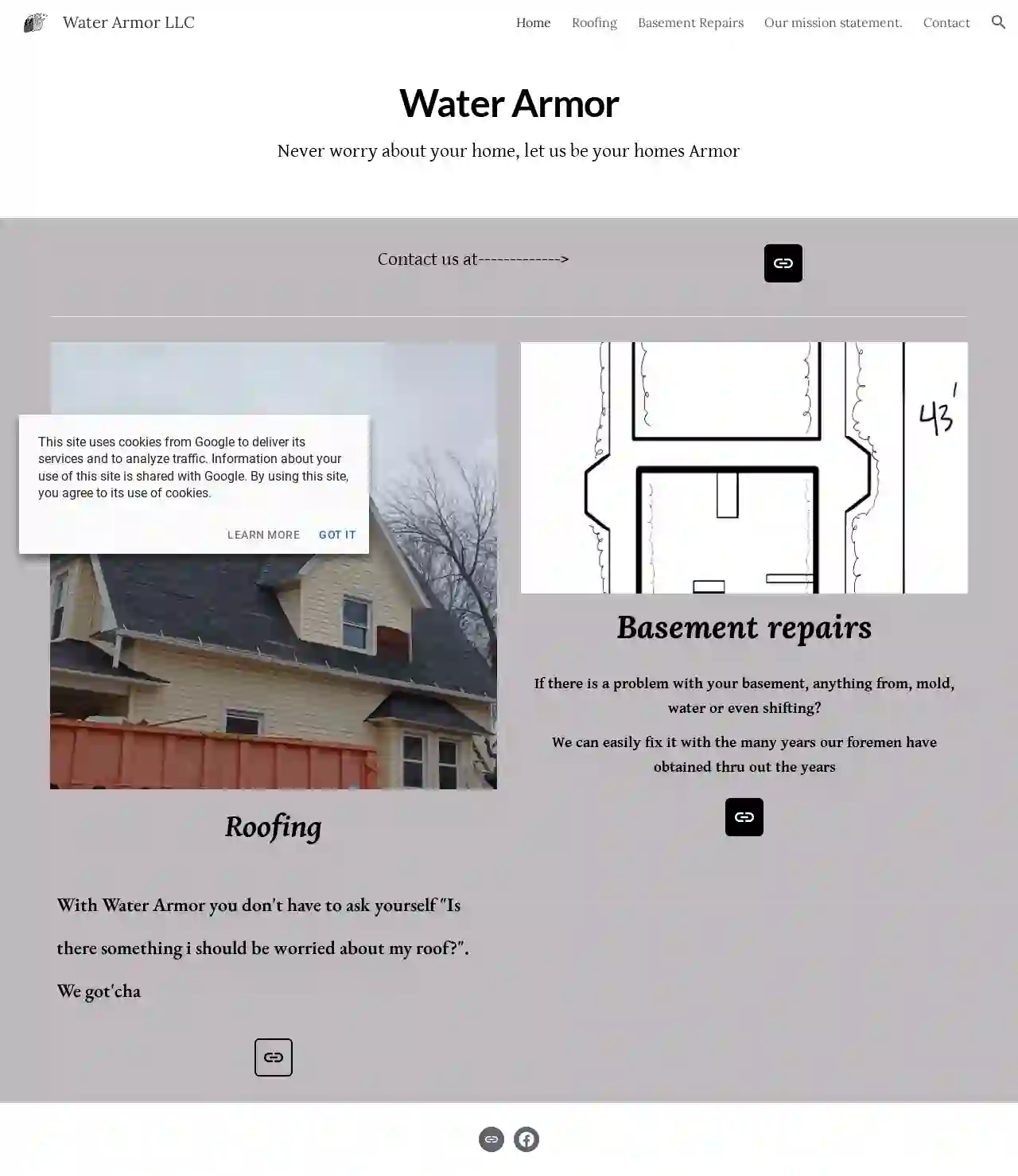Roofing Companies Lebanon
Top Roofing Service in Lebanon
Receive 3 FREE Roofing Service quotes for your project today! Compare profiles, reviews, accreditations, portfolio, etc... and choose the best service.

Tycor Roofing
4.212 reviews1704 Warner Rd., S.E., 44707, USTycor Roofing is a family-owned and operated company founded in 1971. We have protected some of the area's largest and most prestigious commercial buildings, warehouses, stores, hospitals, banks, and movie theatres. Our team has over 20 years of experience and is committed to providing exceptional roofing services. We are a local company with a great reputation and are not 'storm chasers.' We are bonded with Ohio Farmers Insurance and are part of the Assured Partners of Ohio LLC (Westfield Insurance).
- Services
- Why Us?
- Accreditations
- Our Team
- Testimonials
- Gallery
Get Quote
Mount Corrick Construction Inc
4.36 reviews3345 Belden Ave. SE, Canton, 44707, USMount Corrick Construction is a top Canton general contractor, dedicated to reaching the heights of excellence. With a focus on quality and customer satisfaction, we offer a wide range of services, including additions, siding, decks, finished basements, patios, kitchens, baths, windows and doors, and garages. Our team of experts is committed to delivering exceptional results, and we pride ourselves on our ability to work with our clients to bring their vision to life. Whether you're looking to upgrade your home or start from scratch, we're here to help. Contact us today to learn more about our services and how we can help you achieve your goals.
- Services
- Why Us?
- Gallery
Get Quote
Canton Construction Corporation
3.913 reviewsCanton, MI, 48187, USCanton Construction Corporation is a family-owned and operated business that offers a wide range of roofing services in Canton, MI and surrounding areas. We have over 20 years of roof repair and replacement experience. Navigating the insurance claim process can be a challenge. We'll work with your insurance company and make sure that your roof damage insurance claim gets filed properly. After your claim is filed, our roofing contractor can repair or replace your roof with skill and efficiency. If you need seamless gutters, gutter guards or a roof installed on your new construction home, we can handle that, too. We also do driveway, patio, and sidewalk installations. Inquire today! Our Services include Roofing, Gutters, Insurance Claims, and Additional Services such as Kitchen and Bathroom Remodeling, Home Addition Construction, Concrete Pouring, Siding Installation, and Minor Home Repair.
- Services
- Why Us?
- Our Team
- Testimonials
- Gallery
Get Quote
Ash Roofing
4.99 reviewsCincinnati, USAsh Roofing is your trusted partner for all your roofing needs. We offer a comprehensive range of services, from roof repair and painting to gutter installation and chimney repair. Our team of experienced professionals is dedicated to providing high-quality workmanship and exceptional customer service. We are fully insured and guarantee your satisfaction. Whether you need a minor repair or a complete roof replacement, Ash Roofing has the expertise and resources to get the job done right. We use only the highest quality materials and the latest roofing techniques to ensure your roof is durable, reliable,s and aesthetically pleasing. Contact us today for a free estimate and let us help you protect your home.
- Services
- Why Us?
- Gallery
Get Quote
Klayman Roofing & Remodeling
4.746 reviews17586 Palmer Rd, Moores Hill, 47032, USKlayman Roofing & Remodeling is your trusted partner for all your home improvement needs in Moores Hill. Whether you require a minor repair or a complete roof replacement, our dedicated team of roofers is committed to delivering professional-quality workmanship and exceptional customer service. We understand that home improvement projects can be stressful, which is why we strive to make the process as smooth and hassle-free as possible. From initial consultation to project completion, we prioritize clear communication, transparent pricing, and meticulous attention to detail. Our experienced builders are skilled in a wide range of home improvement services, including roofing, power washing, exterior house painting, patio installation, and concrete driveway and sidewalk construction. We pride ourselves on our ability to deliver timely and efficient service without compromising on quality. At Klayman Roofing & Remodeling, we believe in building lasting relationships with our clients. We are committed to providing honest, professional services and exceeding your expectations. Contact us today for a free quote and let us help you transform your home into the space you've always dreamed of.
- Services
- Why Us?
- Gallery
Get Quote
Sherriff Goslin Roofing Dayton
4.774 reviews10 Ave. C, Battle Creek, 45402, USSherriff Goslin Roofing is a leading roofing contractor serving the Dayton, Springfield, and Richmond areas since 1933. We are committed to quality, safety, and integrity in every job we do. As the area's leading roofing contractor, we offer high-quality, professional roofing services for residential homes, farm buildings, barns, and churches. Sherriff Goslin Roofing Dayton provides customers with free roof inspections and free roof estimates, as well as the area’s best roof repairs and roof replacements. We offer an industry-leading 10-year free service guarantee in addition to manufacturer warranties.
- Services
- Why Us?
- Accreditations
- Our Team
- Testimonials
- Gallery
Get Quote
August Roofing & Solar
4.9136 reviews650 Cochran St # 8, Simi Valley, 93065, USFor 30+ years we've helped thousands of homeowners like you get the Roofing & Solar installation services and ongoing support they deserve. Whether you are in need of a leak repair or a full roof replacement, you can count on our local roofing contractors to install quality roofing materials with unsurpassed quality. Our roofing customers enjoy Full Transparency: See photos of your roof. Speed: Same day quote. Quality: Only the best materials. Craftsmanship: Highly skilled crew that cares. Zero Risk Guarantee: No payments until we're done and you're fully satisfied. Our solar customers enjoy Information: A full report customized to your home. Simplicity: We handle all the paperwork for you. Damage Free: Installed by roofers to prevent leaks. Highest Returns: Most efficient technology. Zero Risk Guarantee: No payments until we're done and you're fully satisfied.
- Services
- Why Us?
- Testimonials
- Gallery
Get Quote
Karga Construction
522 reviews2918 Cunnington Lane, Dayton, 45420, USKarga Construction is a team of professional builders based in Dayton, Ohio, dedicated to helping you build a better tomorrow. We specialize in roofing, siding, and renovations for homes and businesses in Southwestern Ohio. We understand that your home's exterior is the first impression it makes, and we strive to deliver quality craftsmanship and meticulous attention to detail on every project. Whether you need a new roof, updated siding, or a complete home renovation, we're here to help. We offer a wide range of services, including roofing, siding, windows, doors, decks, gutters, drywall, floors, cabinets, painting, and porches. Our team has over 50 years of combined experience and is committed to working efficiently to complete your project on schedule and within budget. We take pride in our open communication with homeowners and ensuring your complete satisfaction.
- Services
- Why Us?
- Accreditations
- Our Team
- Testimonials
- Gallery
Get Quote
Water Armor
51 reviewsToledo, USWater Armor LLC Never worry about your home, let us be your homes Armor Roofing With Water Armor you don't have to ask yourself "Is there something i should be worried about my roof?" We got'cha Basement Repairs If there is a problem with your basement, anything from, mold, water or even shifting? We can easily fix it with the many years our foremen have obtained thru out the years Contact Us
- Services
- Why Us?
- Gallery
Get Quote
Orion Construction
4.173 reviews7801 Cleveland Ave NW, North Canton, 44720, USOrion Construction is a locally owned and operated general contractor located in North Canton, Ohio. We specialize in full service insurance restoration services for both residential and commercial properties. Orion was established based on the demand from consumers for rebuild services after an occurrence from a fire, water, and/or storm damage. Our team includes operation managers, project managers, estimators, skilled carpenters, master craftsmen, and roofing specialists that have more than 50 years experience in the construction industry. Our team strives to make sure that every customer is taken care of with honesty, efficiency and professionalism in making a smooth transition from the beginning of the project until the end. Orion Construction works primarily with an insurance based software program which is a pricing and estimating platform in accordance with industry standards. We also have established relationships with numerous Fire and Police Departments around NE Ohio providing 24 hour, 365 days a year emergency services for board up and roof tarps.
- Services
- Why Us?
- Gallery
Get Quote
Over 17,196+ Roofing Contractors registered
Our roofing experts operate in Lebanon and surrounding areas!
Roofyng.com has curated and vetted Top Roofers near Lebanon. Find a top & reliable pro today.
Frequently Asked Questions About Roofing Companies
- Regular Inspections: Inspect your roof at least twice a year for signs of damage or wear and tear.
- Gutter Cleaning: Clean gutters and downspouts regularly to prevent clogs and ensure proper drainage.
- Tree Trimming: Trim overhanging branches to avoid damage from falling debris and reduce shade, preventing moss growth.
- Proper Ventilation: Ensure good attic ventilation to regulate temperature and moisture.
- Timely Repairs: Address any damage promptly to prevent escalation.
- Metal roofs: Reflect sunlight, reducing cooling costs.
- Tile roofs: Offer thermal mass, regulating temperature.
- Cool roofs: White or light-colored roofs with high solar reflectance.
- Green roofs: Vegetated roofs providing insulation and reducing heat absorption.
- Choose Reflective Roofing Materials: Opt for light-colored shingles or metal roofing that reflects sunlight and reduces heat absorption.
- Install Proper Attic Insulation: Adequate insulation prevents heat loss in the winter and heat gain in the summer.
- Ensure Adequate Ventilation: Proper attic ventilation allows hot air to escape, reducing cooling costs and extending the lifespan of your roof.
- Consider a Radiant Barrier: In hot climates, a radiant barrier installed in the attic can reflect heat away from the roof, further reducing cooling needs.
- Style: Consider your home's architectural style and choose a roofing material that complements it.
- Climate: Factor in your local climate conditions. Some materials perform better in extreme heat, cold, or high winds than others.
- Budget: Roofing materials have a wide range of costs. Determine your budget and choose materials that fit your financial constraints.
- Durability and Lifespan: Assess the expected lifespan and durability of different materials.
- Energy Efficiency: Choose materials with good insulation and reflectivity properties to improve your home's energy efficiency.
How do I prevent roof damage?
What are some energy-efficient roofing options?
How can I make my new roof more energy-efficient?
How do I choose the right roofing materials for my home?
How do I prevent roof damage?
- Regular Inspections: Inspect your roof at least twice a year for signs of damage or wear and tear.
- Gutter Cleaning: Clean gutters and downspouts regularly to prevent clogs and ensure proper drainage.
- Tree Trimming: Trim overhanging branches to avoid damage from falling debris and reduce shade, preventing moss growth.
- Proper Ventilation: Ensure good attic ventilation to regulate temperature and moisture.
- Timely Repairs: Address any damage promptly to prevent escalation.
What are some energy-efficient roofing options?
- Metal roofs: Reflect sunlight, reducing cooling costs.
- Tile roofs: Offer thermal mass, regulating temperature.
- Cool roofs: White or light-colored roofs with high solar reflectance.
- Green roofs: Vegetated roofs providing insulation and reducing heat absorption.
How can I make my new roof more energy-efficient?
- Choose Reflective Roofing Materials: Opt for light-colored shingles or metal roofing that reflects sunlight and reduces heat absorption.
- Install Proper Attic Insulation: Adequate insulation prevents heat loss in the winter and heat gain in the summer.
- Ensure Adequate Ventilation: Proper attic ventilation allows hot air to escape, reducing cooling costs and extending the lifespan of your roof.
- Consider a Radiant Barrier: In hot climates, a radiant barrier installed in the attic can reflect heat away from the roof, further reducing cooling needs.
How do I choose the right roofing materials for my home?
- Style: Consider your home's architectural style and choose a roofing material that complements it.
- Climate: Factor in your local climate conditions. Some materials perform better in extreme heat, cold, or high winds than others.
- Budget: Roofing materials have a wide range of costs. Determine your budget and choose materials that fit your financial constraints.
- Durability and Lifespan: Assess the expected lifespan and durability of different materials.
- Energy Efficiency: Choose materials with good insulation and reflectivity properties to improve your home's energy efficiency.